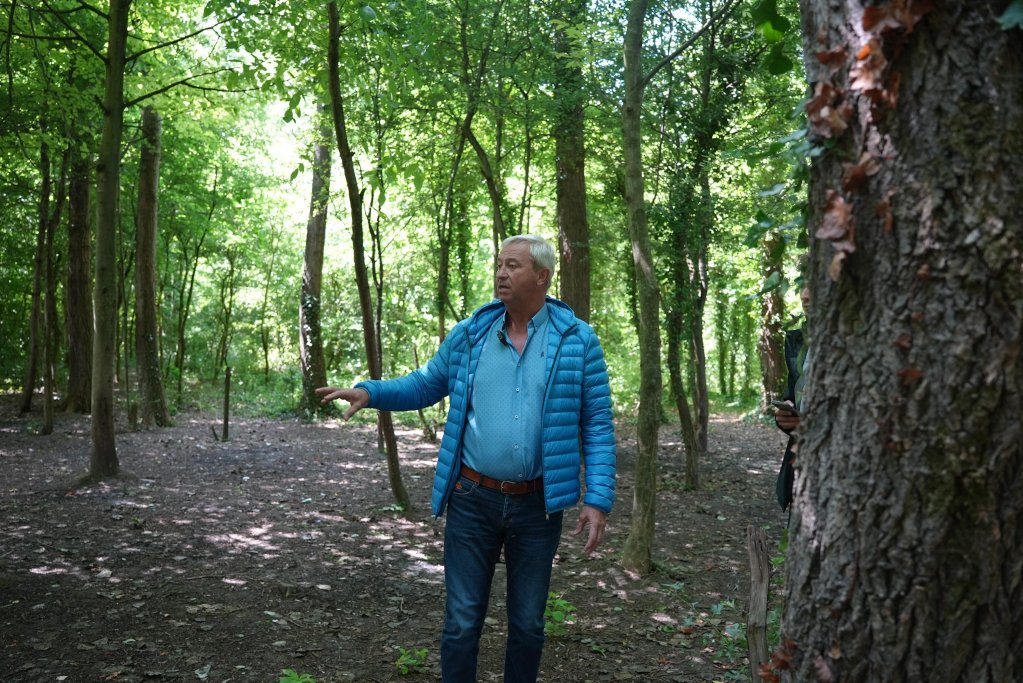A joint Franco-British summit partly focused on irregular migration began this week, as small boat crossings in the Channel continue to rise. Coastal mayors who fear tragedies in their communities are on the frontline of the crisis.
By Louis Chahuneau, special correspondent in Calais
It only took a few meters to stumble upon it. Rubbish, golden survival blankets, and other signs of migrants passing through, litter the ground in Polder Park, a few hundred meters inland from Gravelines beach in northern France.
"If the weather is good, we notice between four and five crossing attempts per day between Dunkirk and Gravelines," said Alain Boonefaes, deputy mayor of Gravelines.
Situated between Calais and Dunkirk, Gravelines wasn’t affected by the small-boats crisis until after 2022. Yet lately it has become one of the main departure points for groups of migrants who hide in the forest or in the dunes at night. They later cross the English Channel in small boats to reach the United Kingdom, which is located about thirty kilometers away. Over 20,000 migrants have crossed the Channel in inflatable boats since the beginning of 2025; a figure that represents 48 percent more than in 2024, and 75 percent more than in 2023.
'The residents are starting to get angry'
Dressed in a turquoise down jacket, Boonefaes walks through the woods and stops in front of patches of crimson earth, a sign of recent campfires. Migrants sometimes wait the entire night in the forest before the smugglers give them the green light to leave. They then head for the beach within minutes, and either dig out a boat previously hidden in the dunes, or board a taxi boat launched from the Aa River.

The constant activity has finally begun to disturb the peace of the city: "The residents are starting to get angry; some see campfires at the end of their gardens. Others have already heard gunshots [a sign of the violence that accompanies traffickers and their score-settling, editor’s note]," says Boonefaes.
Home to the largest power plant in Western Europe, Gravelines has long benefited from a dynamic economy. "People come to work in Gravelines," said Bertrand Ringot, the mayor of the city. "All the companies that move to Dunkirk establish themselves in Gravelines. Of course, all of this doesn't mix well."
The Franco-British summit
Ringot created a collective along with some twenty mayors, including the mayor of Calais Natacha Bouchart, to alert the government of the migration crisis in the Haut-de-France region (formerly known as the Nord-Pas-de-Calais region). The British authorities want French law enforcement to adopt new measures that would allow the approximately 1,200 police officers and gendarmes deployed along the coast to stop boats while they are in the water within the 300-meter zone which is under the responsibility of the Maritime Prefect. The practice is even already underway: a week ago, journalists from the BBC filmed French gendarmes slashing a rubber boat that was already in the water.

The new directive leaves many skeptical, from migrant aid associations to police officers who fear more people will die once they begin intervening in the water. Since the beginning of 2025, 15 migrants have lost their lives in the English Channel. "The equipment used by police officers on patrol to combat illegal immigration weighs ten kilos, which is no easy task when you have to enter the water," said Marc Musiol, a representative of the Pas-de-Calais Border Police.
Boonefaes is equally skeptical: "There is a real risk of causing a tragedy. Along with the other mayors, we're advocating for the establishment of a no-camp zone along the coast," he said.
'They are taking more and more risks'
The migrants are currently spread across two camps, in Loon-Plage and in Calais, as well as in a multitude of squats and informal settlements scattered along the coast.
In Calais, over 200 migrants, most of them from Sudan, are housed in an orange warehouse on rue Marcel Doret. The shelter is scheduled to be evacuated in September. A few dozen exiles were lined up on a July morning in front of the Salam association's van, which comes every day to distribute food. On the menu: bananas, cake, bread, and water. "We know when they are about to leave by boat, because they take extra food so they can hide in the dunes for several days," said Yolaine, 66, a long-time volunteer with the association.
Migrants have been under increasing pressure over the last few months, according to the volunteer. "They're taking more and more risks to cross to England. Their living conditions are also becoming more precarious."
Enock, a 27-year-old Eritrean who has been in Calais for five months, has already tried to cross the Channel four times, without success. "I paid 1,400 euros, and now I have no more money. I think I'll apply for asylum in France. The UK is over for me," he says.
For hundreds of other migrants in France, giving up is out of the question. The local law enforcement expects more crossing attempts with the clement weather conditions forecasted this weekend.
